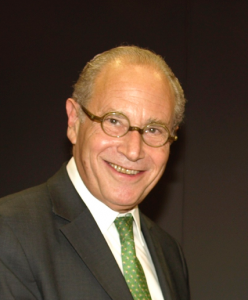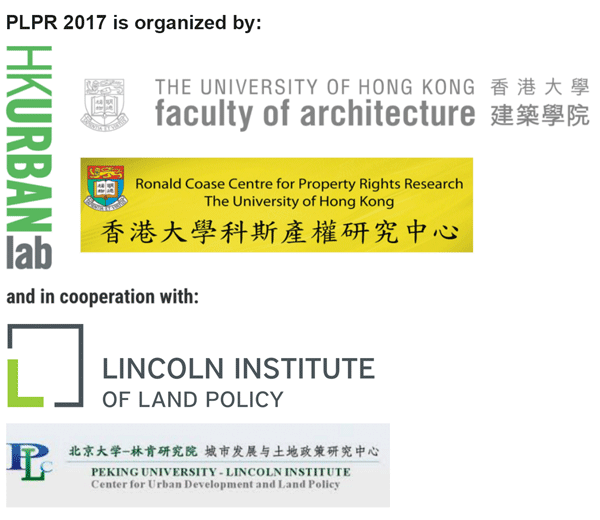Keynote Speaker: Rachelle Alterman

The role of law in planning: from devil to angel
Time: February 22, 2017 – morning | at HKU
Planning and law are reluctant bedfellows, trained in very different disciplines. Since the Industrial Revolution, planning and law have evolved together, but not always in tandem. There is an inherent imbalance between the two. The ancient and highly institutionalized discipline of law can survive well without planning, but in order to implement plans and achieve change, planning needs legal instruments. Yet, planning theory has almost ignored the role of law in planning. In order to boost good planning across the globe, planners must become more knowledgeable about the roles played by law. This has been the mission of PLPR, established exactly 10 years ago.
Planning laws and real property rights – unlike some other fields of law – are largely domestic, inwards-looking, and differ significantly from country to country. But regardless of their differences, they harbor a paradox. Laws and regulations can serve as the angels that provide planning with instruments to achieve just and inclusive cities and regions. But they can also be the devils that enable adoption of plans that promote social exclusion, unequal distribution of public services, or exposure of the poor to environmental hazards. On the procedural level, the law can help the disempowered challenge bad plans, but in reality, legal procedures often favor the rich. Of course, in real life, the roles of laws are not black or white. The ways they are perceived vary over time and across countries.
I will argue that planning education and research should seek to empower planners to play a more active role in the legal arena. Due to the relative insularity of planning laws in each country, legal norms with negative effects may be regarded as an unchangeable part of the system. Planners, as well as civil society actors, are often discouraged from challenging the current legal norms under the assumption that the law is a “given”.
Comparative research on planning law can help to break this lock. In this talk, I will draw on examples of my research in several fields of planning law and will demonstrate how widely they vary across countries. Planners’ knowledge about the wide spans of alternative legal instruments and approaches, shared with legislators, can help reassessment of domestic laws and practices. By improving our ability to distinguish better between angels and devils, we can create better synergy between planning and law.
About the speaker
Dr. Rachelle Alterman is a full professor who holds the David Azrieli Chair in Town Planning at the Technion (“Israel’s MIT”). Holding degrees in planning and in law from Canadian and Israeli universities, Alterman specializes in cross-national comparative planning law, land use regulation and property rights. Many of her 170 academic publications are in these areas, as well as in planning theory, implementation, and public participation. (more…)
Keynote Speaker: Richard Sandor

Financial Innovation: The Convergence of Environmental and Financial Markets
Date: Feb 22, 2017 (Wed)
Times: 4:15-5:45pm (Lecture), 5:45-6:30pm (Tea Reception)
Venue: Yuet Ming Auditorium, 5/F Chong Yuet Ming Amenities Centre, HKU
Registration link: https://hkuems1.hku.hk/hkuems/ec_regform.aspx?guest=Y&ueid=48130 (only for people who are not registered for the main conference)
Markets in emissions and “rights-to-use” have been used to address environmental problems and have created enormous investment opportunities. They achieved this by commoditizing and pricing “externalities”. The convergence of the environment and finance is here to stay, and the market-based applications in sulfur dioxide and carbon emissions are only the beginning. This new asset class holds enormous promise in fields such as water quality and quantity and for countries like China and India. Prof. Richard Sandor will share his views from his most recent book (“Sustainable Investing and Environmental Markets: Opportunities in a New Asset Class” published by World Scientific) on what it takes to build markets in these areas; and the opportunities and trends in this new asset class.
About the speaker
Richard L. Sandor (Ph.D., Dr. sc. h. c.) is Chairman and CEO of Chicago-based Environmental Financial Products, which specializes in inventing, designing and developing new financial markets. EFP was established in 1998 and was the predecessor company and incubator to the Chicago Climate Exchange (CCX), the European Climate Exchange (ECX), the Chicago Climate Futures Exchange (CCFE) and the Tianjin Climate Exchange (TCX). He is also the CEO of the American Financial Exchange, an electronic interbank lending marketplace. Prof. Sandor is currently the Aaron Director Lecturer in Law and Economics at the University of Chicago Law School and a Visiting Fellow with the Smith School of Enterprise and the Environment at Oxford University.
He was honored by the City of Chicago for his universal recognition as the “father of financial futures”. In 2002 he was named by TIME Magazine a “Hero of the Planet”; and in 2007 as one of the magazine’s “Heroes of the Environment” for his work as the “Father of Carbon Trading.” In October 2013, Dr. Sandor was awarded the title of Chevalier dans l´ordre de la Légion d´Honneur (Knight in the French National Order of the Legion of Honor), for his accomplishments in the field of environmental finance and carbon trading. He holds an honorary degree of Doctor of Science, honoris causa, from the Swiss Federal Institute of Technology (ETH). Dr. Sandor is a Member of the Advisory Board of the Center for Financial Stability and the Smithsonian Tropical Research Institute; and a Senior Fellow of the Milken Institute. He served on the board of directors of leading commodity and futures exchanges in the United States and Europe. Dr. Sandor is the author of “Good Derivatives: A Story of Financial and Environmental Innovation”; and the lead author of “Sustainable Investing and Environmental Markets: Opportunities in a New Asset Class” (World Scientific). Both were published in Chinese by People’s Oriental Press. His new book “How I Saw It: Analysis and Commentary on Environmental Finance (1999–2005)” was also published by World Scientific in late 2016.
Download the lecture ppt here.
Special Session: Property Rights and Governance of Integrated Sustainable Under-Above Ground Developments

Session Chair: KP Cheung, The University of Hong Kong
In densely populated cities, expansion of urban areas is a thorny task especially for those constrained by their physical environments. In the past decades, substantial efforts have been put in around 30 countries such as Canada, Japan, Singapore, Korea, Germany, the US and the UK etc. to explore the creation of underground spaces and cities. Trails have been made to create underground connections, public spaces, interchanges, shopping malls and cavern developments for public utilities etc. These attempts not only pose challenges on engineering, traffic and planning considerations, but also give rise to concerns and debates of potential conflicts on property rights and governance issues. These conflicts entail identification of rights over the under-above ground structures, governance structure of managing integrated complex developments, land management system and dispute resolution mechanisms etc.
This special session welcome studies of the following topics:
- Delineation of property rights for under-above ground developments.
- Governance structures and issues of complex integrated under-above ground developments.
- Evaluations of institutional arrangements to facilitate land management, investment, public-private-participation, financing and dispute resolutions of underground cities.
- Institutional innovations for sustainable integrated under-above ground developments.
KP Cheung
Associate Professor
Department of Architecture
The University of Hong Kong
Email: kpcheuna@hku.hk
Special Session: An Emerging Agenda of Planning, Law, and Property Rights in China

Session Chair: Dr. Zhi Liu, Director, Peking University—Lincoln Institute Center for Urban Development and Land Policy, Beijing, China
The primary purpose of the proposed special session is to promote the academic debate and professional awareness on the emerging issues of planning, law and property rights (PLPR) in China. Strengthening private property rights both in urban and rural areas is one of the key actions in the current round of comprehensive policy reform. However, the Chinese planning profession is not well equipped with the knowledge of PLPR. On the other hand, the international academic community is increasingly interested in the PLPR issues in China. In this context, the session is designed to discuss the property rights issues that are emerging from the spatial planning, land use practices, and real estate development in China, to introduce relevant international experiences, and to explore the ways forward in addressing China’s property rights issues in planning, land use, and real estate development.
The Peking University—Lincoln Institute Centre for Urban Development and Land Policy (PLC), a co-sponsor of the 2017 Annual Conference of PLPR in Hong Kong, has led and supported PLPR research in China over the last two years. The proposed session is intended to share the findings of several studies conducted by scholars funded by the PLC and Lincoln Institute. The presentations will mainly cover the following topics:
- An overview of the emerging PLPR agenda in China
- Deficiencies in the Chinese planning law system
- Directions for China’s land policy reform
- Mortgage enforcement and public regulatory actions
- Small property rights housing and illegal construction
- Legal and regulatory constraints in transit-oriented development and land value capture
Dr. Zhi Liu
Director, Peking University—Lincoln Institute Center for Urban Development and Land Policy
Senior Fellow and China Program Director, Lincoln Institute of Land Policy
Leo KoGuan Building, Suite 508
Peking University, Beijing 100871, China
Tel.: +86 10 6275-6535
zliu@lincolninst.edu
Special Session: Developer obligations towards better infrastructure
Session Chairs:
Dr. Demetrio Muñoz Gielen
Dr. Prof. Erwin van der Krabben
(Radboud University Nijmegen, the Netherlands)
Dr. Prof. Rachelle Alterman
(Technion – Israel Institute of Technology)

In many developed economies public bodies are not anymore expected and/or able to pay all necessary public infrastructure in urban development (road infrastructure, parks, social facilities, affordable housing, sustainable measures, etc) and therefore increasingly pursue private financing. Fast urbanizing countries in Asia but also in the rest of the world also pursue the financial commitment of private parties. As a consequence, public land value capture instruments, and among them developer obligations, are gaining prominence among urban planning and land management instruments.
Special Issue in Journal of Housing and the Built Environment on Urban Conservation

The Theme
Urban conservation has become a thorny task in many developing economies. While the general public recognizes the value of heritage preservations, under rapid urbanization, there exists misalignment of incentives among the building owners, communities, governments, politicians and policy makers. As far as the building owners are concerned, the existence of rent gap between the existing and potential use is the major driving force for redevelopment. (more…)
Special Session: Governance of Land Use
Governance of land use: between place and flows
Session Chair: Dr.-Ing. Christian Strauß, Berlin, Germany

Land use is influenced by a high variety of institutionalised activities. However, relevant policy fields in Europe – regional, agricultural and environmental policies, in particular – differ with regard to levels of activity, involved actors, topics, targets, instruments and governance modes. Although comprehensive planning and management instruments exist and sectoral activities have tended towards more integrative approaches over the last few years, an overall integrative system still does not exist. Therefore, there are still challenges to improve the interrelations of supra-local institutions, regional governance modes and property rights of private land owners. (more…)
Special Issue in Habitat International on Institutional Innovations

Theme
Urban planning and land development legislative frameworks in the developed economies evolved constantly during the 20th century, changing roughly every decade in the UK for example. In fast urbanizing Asia, governments are rapidly putting into place their own institutions to support the conversion of agricultural land and adaptation of redundant urban land into high density habitats. China’s experience in particular provides a fascinating laboratory for the comparison of old and new ideas. In this special issue, we wish to bring together contributions that reflect on the efficacy, efficiency and equity of a wide variety of urban planning and land management instruments. It will explore what could work, what might have worked, what did not work, what can be improved and what might be a dead end. It is high time for scholars from countries with a century or more of experience in legislating for urban growth to share experiences with the newly urbanising countries.
We seek for evaluations, empirical studies and proposals of institutional innovations in the 20th and 21st centuries. Topics may include, but not limited to, the following:





